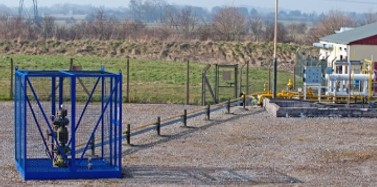Nottinghamshire County Council has banned fracking on its land.

A motion put forward by the Independent Alliance at the county council, which was amended by the Conservatives, was passed unanimously by councillors at the full council meeting on January 19. The motion stated: “The council believes that fracking has the potential to detrimentally impact the environment.
“This council does not support fracking in Nottinghamshire or outside county boundaries which could adversely affect residents in our county.
“This council, therefore, commits not to allow any fracking activities, including survey work, on Council owned or controlled land and property, unless and until national policy changes.”
In 2019 the Conservative party made a manifesto commitment to ban fracking, but in September 2022 then-Prime Minister Liz Truss lifted the ban. The ban was then reintroduced in October 2022 under Rishi Sunak’s leadership.
Supporters say it can create energy at a low cost and create jobs, but many environmental campaigners have opposed it, saying it can harm wildlife and cause pollution.
Cllr Mike Adams (Con), Environment Ambassador for the county council, said during the meeting: “I am not willing to be a passenger on the energy bus that we are travelling on.
“Although fracking is here and continually seems to show its face in the energy discussion, it is definitely not the future of energy.
“The way we’ve got to keep ensuring that is the case is listening to businesses and residents.
“If we can take that step and push businesses along, the need for these panic button situations to get fracking on board when bills go up, is not needed as much.
Cllr John Willmott (Ind) said the prospect of fracking should be “kicked into the long grass”.
He said: “The best way of doing that is to have a policy against fracking. Scientists have proved it’s a health hazard. Green modern energy is the answer.”
Cllr Penny Gowland (Lab) said: “Fracking is not the answer. it will put Co2 into the air. We must oppose it.”
Councillor Steve Carr (Lib Dem) and a member of the Independent Alliance seconded the motion and said after the meeting that it was a “historic day for Nottinghamshire County Council”.
He said: “It was the day we finally said no to fracking. We have sent a clear message to the Conservative Government that value we our environment. I was pleased to play a central role in forcing a council the Council to protect our environment for future generations across Nottinghamshire.”
Speaking after the meeting Cllr Jason Zadrozny, leader of Ashfield District Council, said: “We are delighted that as a result of our campaigning, Nottinghamshire County Council has now changed its policy on fracking. Let me be clear – fracking will be an environmental disaster and will not cut energy bills by one penny. Independent Councillors are really making a difference as the opposition in County Hall. This is yet another example.”






